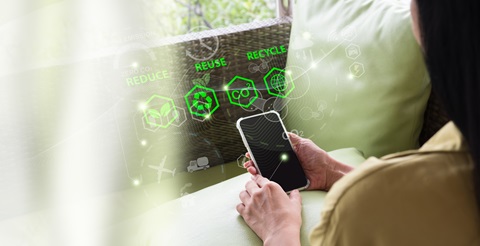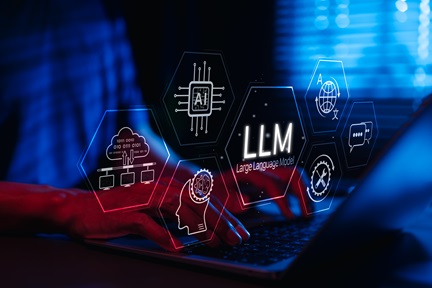Foreword Coffee: Marrying Passion and Mission
Founded in 2017, Foreword Coffee empowers people with disabilities and special needs by providing work opportunities at cafes across Singapore, providing customised on-the-job training for employees, and actively created ways to develop their employees professionally.
Hear from co-founders Lim Wei Jie and Nadi Chan as they share their journey in social entrepreneurship.
What was a particularly memorable event or encounter that you experienced growing up, that adds to the inspiration for social entrepreneurship? Are there any other events that also inspired you?
Wei Jie: Growing up, I had a late uncle who had a disability where he was not able to speak and had difficulty controlling his muscle movements. Because of his condition, he was not able to express himself well, but he doted on his nieces and nephews a lot. That was my earliest encounter with disability before I had a concept of it.
As I entered university, I knew I wanted to make an impact in this world, but in what way, I wasn’t sure. Throughout my university years, I exposed myself to different marginalised communities through various programmes, including the UTown College Programme at the College of Alice and Peter Tan (CAPT), the Chua Thian Poh Community Leadership Centre (CTPCLC), and the NUS Overseas Colleges Programme (NOC). The accumulation of experiences in these programmes and interactions with peers with siblings with special needs, and studying social entrepreneurship as a module led to sowing the seed in my mind.
In particular, my 6-month internship experience at Skillseed, inspired me the most. I got to meet many young social entrepreneurs in the social enterprise and non-profit ecosystem. That got me to think that social entrepreneurship can be a viable career option.
A little less known fact is that my father was also an entrepreneur when I was in primary school. I have vague memories of accompanying my father to his office on weekends to wash his car and tidy up the place.
Nadi: I think it was the first time I began working with someone with special needs – it was a boy with mild autism. When I first worked with him, the only thought that I had was, “This boy could do any tasks like any able-bodied person, perhaps he was just a little more unfocused. What can we do to help?”
Regarding the inclusive and deliberate hiring of “differently-abled” employees, can you recall any interesting episodes where these employees surprised you with a gesture or work performance?
Wei Jie: When I head to the cafes for observation, I see that our employees have built relationships with regular customers at their outlets, remembering their names and their usual orders. That was a very heartwarming thing to know because this was initially not in my cafe training. Our employees went beyond their duties to make connections, and customers have given us positive feedback in this aspect.
Nadi: When my differently-abled staff sat me down at an event we were having a coffee booth at, and she started to practice her sign language on me, to better communicate with her supervisors.
Many business owners would shy away from this choice of employees. Were there any initial challenges encountered when onboarding new employees, and what are some considerations that you have during the selection process?
Honestly, I do not require any F&B background for employees with disabilities and special needs to join the cafe team. As long as the candidate has a positive attitude and the interest in the F&B industry, we hire them when there is an opening at the cafes.
What are some protocols that you have set up in place at the cafes, both for the employees and for customers?
Wei Jie: Our coffee workflow is broken down into smaller steps as part of an overall system. This makes it easier for employees with high support needs to take their time to learn parts of the whole process before moving on to the next level.
There are no protocols for our customers – sometimes they may get shocked being served by a deaf staff at the counter, but that shock would quickly subside as our staff are confident in taking orders via other means (e.g. pointing to menu and making sure orders are made correctly through the other side of the screen).
Nadi: We do not label our staff at the cafe, so there is no “protocol” for the customers to follow. Some accommodations we have at our cafe are the visual aids all around, reminding staff of recipes and important tasks to do.
Besides extending the consideration of sustainability to people, you have also considered what sustainability means for the supply chain of your coffees, and for the environment. Can you elaborate on your sustainability efforts in ethically sourcing for coffee growers, and what other aspects of the value chain were made more sustainable in the ‘bean to cup’ process?
Wei Jie: The coffee supply chain involves multiple stakeholders from bean to cup. The industry as a whole is working to make this supply chain more transparent and more sustainable, by acknowledging the coffee growers’ efforts and paying them more equitable and sustainable incomes. As we enter this industry, we want to work with coffee partners who are also doing good at the start of this value chain. Hence, we started to import coffee on our own with partners who provide transparency of prices and the coffee growers whom they work with. By importing on our own, we shorten the supply chain and fewer middlemen are involved. However, this increases our costs as air and sea freight can be costly, especially in this Covid-19 pandemic. The usual coffee supply chain involves multiple stakeholders:

Our coffee supply chain is shortened as our coffee partner is the exporter and also manages multiple parts of the supply chain, while Foreword Coffee manages the import, roasting, and brewing at our cafes:

Nadi: We avoid the coffee commodities market and try to go as direct to the farms as possible – this enables farmers to charge more for their products and create a more sustainable livelihood for themselves.
At closer to the consumer end, we try to reduce our environmental footprint by using renewable materials like PLA, recycle where possible (we have tables from upcycled milk bottles) and encourage people to bring their own cups.
How has your background and education received from university sustained you in this enterprise? In what ways is the training and education that you received still contributing to your operations/ finances/ success today?
Wei Jie: I think my Psychology training has helped me a lot because the understanding of the human psyche is what makes me still do what I’m doing. I understand and see the potential in the human development of those with disabilities and special needs. I’ve studied developmental psychology, abnormal psychology, and even mental health disorders. My approach towards the business is a humanistic one, and that guided me to build a company culture with our people in the centre. Other than that, everything else is about learning how to learn, creating frameworks and structures, organising information and resources, being in tune with ourselves, and be self-aware of our thoughts and emotions, etc. All these are cross-disciplinary. Of course, I leave the finances to my trusty co-founder, Nadi, who knows numbers better than me, and everything else I can learn along the way.
Nadi: I studied Economics in NUS, which is essentially the study of choice under scarcity conditions – one of the first few topics taught is opportunity cost, and as an SME/Start-up with limited resources, this is especially pertinent and is something we are very cognizant about. Beyond the actual knowledge attained, I believe that university has taught me how to tackle large problems systematically and break down knowledge quicker.
Please elaborate on your considerations for incorporating sustainability efforts in the environment with regard to the day-to-day operations of the cafes. Are you looking for new ways to incorporate more sustainable solutions into your business venture?
Wei Jie: We look into ways to make our business more “sustainable”. We have initiatives like “return and reuse”, “reduced packaging”, and providing discounts when customers bring their own cups at the cafes. I truly believe businesses need to give the green nudge, or cast disincentives (such as imposing charges for extra plastic bags, for example) at appropriate times. The challenge we face is that we are still a small company with little resources to expand on initiatives that I have in mind, such as a circular system for reusable cups across our cafes. This is a logistical and inventory problem when we need to track how the cups are circulating across Singapore; it is also a new business model altogether because we need to think how to implement this circular system sustainably as there are costs involved. Moving forward, we are looking at other softer approaches towards sustainability as we want to reduce the packaging waste for our ecommerce, and continue to divert waste into the mainstream waste disposal with partners who collect our trash, such as our plastic milk bottles, and turn them into useful products again.
Nadi: We cannot compromise our product and its quality – e.g. getting a “more sustainable solution” but at the expense of our product/coffee is not acceptable. Ultimately, the sustainable alternative should ideally be able to provide the same benefits as the current solution. For example, getting an eco-friendlier packaging that does not keep our coffee beans fresh does not make good business sense. For sure, we are looking out to incorporate mores sustainable solutions but it needs to at the very least be as good as what is already out there.
What is your best advice for other like-minded social entrepreneurship individuals?
Wei Jie: There’s no “work-life balance”. Think about “work-life integration” instead. As a startup, the values of the business and your personal values will be intertwined. For a social enterprise, your personal and business lives will be intertwined. Be really clear about why you are doing this. Have the right motivations. Otherwise you will not stay in this for long. Reach out to other social entrepreneurs as they will be the people who would understand your situations and egg you on in your toughest moments.
Nadi: Watch your double bottom line (profits & social impact) – it should not skew too much to either side.
What would you say to naysayers who believe that business and social goodwill (or social philanthropy) or climate consciousness, do not mix (are mutually exclusive)?
Wei Jie: If you already decide that business and social goals cannot come together, then it will never work. If that is your mindset, you will not put in the effort to make it work. We need to change our mindset and perspective first, that we want to do good and do well. Then, we will find all ways to make it happen. Humans are creative, full of potential, and highly adaptable. This is why we see so many new technologies and new ways of doing business in the market. In fact, during this covid-19 pandemic, people are trying to find more meaning in their life and in the work that they do. It is increasingly harder for businesses to ignore that they need to not only makes profits, but also contribute something meaningful to the world.
Nadi: I think that they would need to get on with the times – this trend is here to stay especially with an increasing number of ESG investors. If they stick to that belief, they will get left behind.


.tmb-listing.jpg?Culture=en&sfvrsn=41c3e350_1)
.tmb-listing.png?Culture=en&sfvrsn=d48abb4_1)



